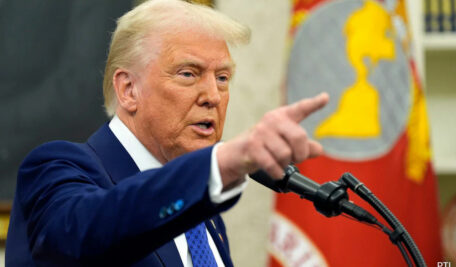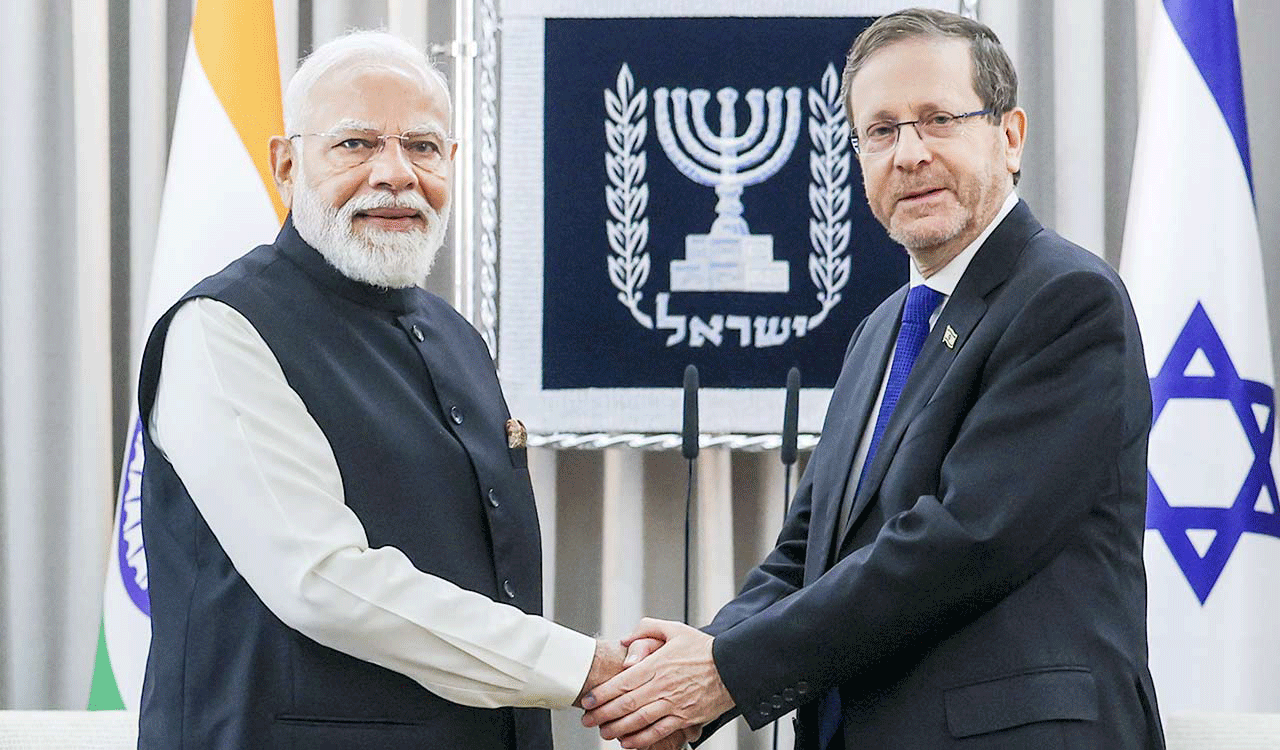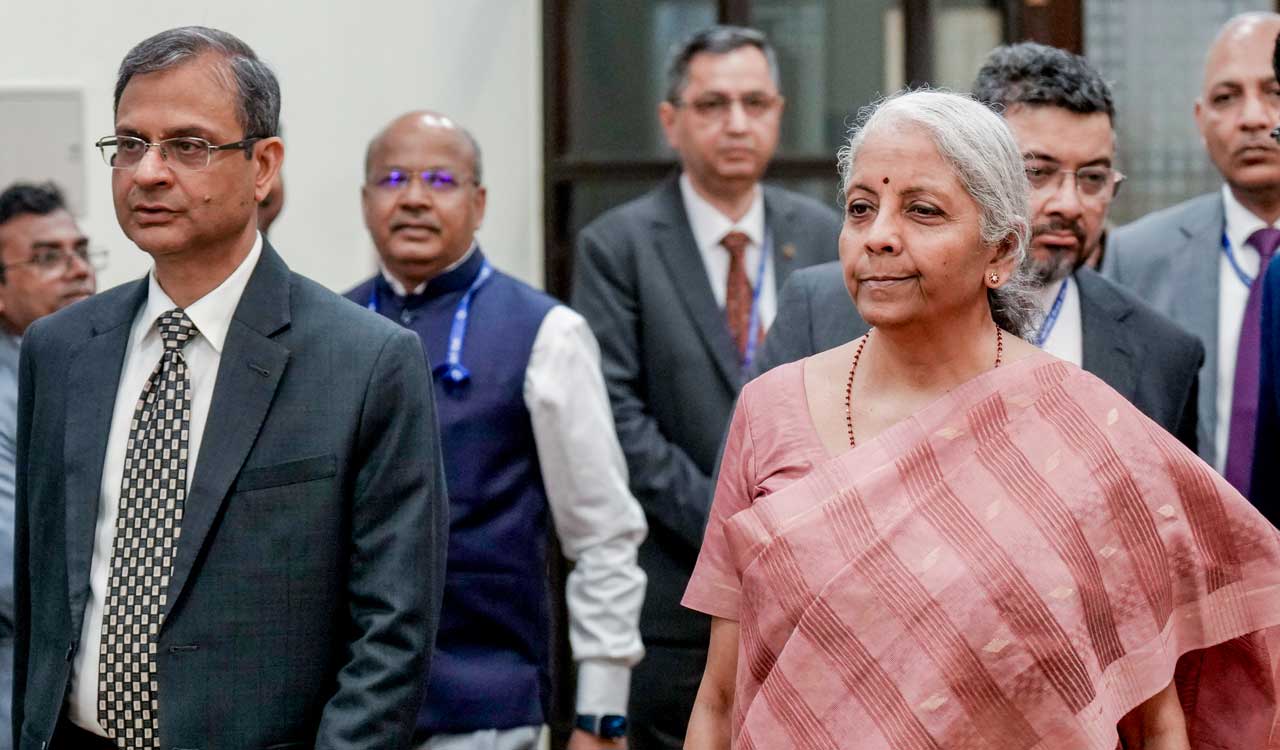Opinion: Tariffs over ideology
Washington’s 50% tariff move signals a shift—economic interests now trump ideological alignments in global trade

By Dr Prashant Kumar Choudhary, Alok Aditya
The United States has announced sweeping tariff hikes across dozens of trading partners, with India and Brazil facing the steepest blow — 50 per cent duties, its highest yet. The new rates signal a significant shift in Washington’s approach to trade, revealing a deeper recalibration in how the US views ideology and economic order in a multipolar world.
Also Read
The idea of globalisation-led capitalism, which had been the selling point of the developed Western countries (such as the US, the UK, France, and Germany) to the Asian, Latin, and African countries, seems more off track. The tariff imposition does not fit the ideology aligned with the rise and propagation of capitalism. Brazil, despite occasional hiccups, largely remained an ally of the US, while India kept a “principled distance,” leaning closer to Russia.
Yet today, Brazil is governed by a left-wing coalition, India by a right-wing coalition, and the US itself by the Republican Party. If ideology were the yardstick, one would expect New Delhi to be spared such harsh penalties. Instead, the White House has chosen to punish both Brazil and India — despite their very different alignments — underscoring that economic interests, not ideological convergence, are shaping trade decisions.
The Global Tariff Web
India and Brazil’s tariffs stand out not only for their size but for their symbolism. Mexico, America’s largest import source at 15.5 per cent, faces a 25 per cent tariff. China, with a 13.4 per cent share, is hit with 30 per cent. Canada, at 12.6 per cent, will see 35 per cent. Even close allies such as Japan, Germany, the UK, and South Korea face hikes between 10 and 20 per cent. Switzerland, another longstanding partner, has been slapped with a punishing 39 per cent.
Tariffs are no longer tactical tools of diplomacy; they are strategic instruments to preserve the US’ centrality in a world where economic power is fragmenting
By contrast, India — accounting for just 2.7 per cent of US imports — faces the maximum rate of 50 per cent, equal only to Brazil, which makes up a mere 1.3 per cent. Neither country is a dominant supplier to the American market, making the decision less about volume and more about message. Washington appears to be singling out two large emerging economies from the Global South, both of which are central to the BRICS grouping that has sought alternatives to the dollar-dominated order.
Globalisation vs Protectionism
This move also jars with the ideological pitch of globalisation. Since the 1970s, India’s globalisation index has risen from 29.2 to 61.7, while Brazil’s has gone from 39.5 to 64.3. The US itself remains among the most integrated economies at over 80. In theory, the spread of capitalism should have created an incentive for open trade and deeper interdependence. Instead, the world’s most powerful economy is retreating into protectionism, even as it lectures others on liberalisation.
Washington justifies some of its actions by pointing to India’s surging oil imports from Russia, rising from 2.1 per cent in 2021–22 to over 35 per cent in 2024–25. But the charge sounds selective when Europe, China, and Japan have all done the same. More than sanction enforcement, the tariffs seem tied to the US anxiety over the dollar’s role as the global reserve currency. With BRICS members exploring de-dollarisation and alternatives in trade settlement, punitive tariffs on India and Brazil look like a pre-emptive strike to remind rising powers of America’s leverage.
Ideology Takes a Back Seat
During the Cold War, Washington’s trade preferences often mirrored political loyalties. Today, its tariff structure reveals a single constant—the primacy of US domestic economic interest, from protecting jobs to keeping exports competitive. This erosion of ideology as a guiding principle also reflects the larger collapse of communism as a viable economic counterweight. If no rival economic model challenges capitalism globally, there is little reason for Washington to calibrate its trade strategy around ideological blocs. Instead, what matters is the raw calculus of power: jobs at home, control over currency, and leverage in global supply chains.
Template for the Future
Seen in this light, the 50 per cent tariffs on India and Brazil are less an exception and more a template for what lies ahead. Even in a multipolar world, where China, the EU, Russia, and India jockey for influence, the underlying system remains capitalistic. The competition is over who dominates trade, GDP, and defence — not over which ideology shapes the economy.
For India, the immediate concern will be how such tariffs affect its exports and bilateral trade negotiations. But the deeper lesson is geopolitical. Old alignments, whether Cold War loyalties or ideological affinities, matter less and less in Washington’s calculus. Brazil’s decades of friendship have not shielded it. India’s shared right-wing governance with the US has not saved it either.
Instead, all countries, big or small, are being reminded of a blunt reality: in the American playbook, national economic interest trumps ideology. Tariffs are no longer tactical tools of diplomacy; they are strategic instruments to preserve the US’ centrality in a world where economic power is fragmenting.
As the dust settles on this new tariff regime, one conclusion stands out. The United States is signalling that the era of ideology-driven trade concessions is over. In its place emerges a harsher, interest-first order — one where even allies must brace for penalties if they appear to challenge America’s economic primacy. For India and Brazil, the 50 per cent tariff may thus be less about trade disputes and more about a global lesson in power: capitalism is the common ground, but sovereignty over it is still very much America’s game.

(Dr Prashant Kumar Choudhary is Assistant Professor, Department of Public Policy, Manipal Academy of Higher Education, Bengaluru. Alok Aditya is Senior Research Fellow, Centre for Economic Studies and Policy, Institute for Social and Economic Change, Bengaluru)
Related News
-
US, Israel clash with Iran in UNSC, as UN chief Guterres warns of uncontrollable ‘chain of events’
39 seconds ago -
Hyderabad Task Force busts illegal ginger-garlic paste unit
45 seconds ago -
Iran’s Supreme Leader Ayatollah Ali Khamenei, who led the Islamic Republic since 1989, is dead at 86
23 mins ago -
Growing evidence points to Khamenei’s death, says Netanyahu
9 hours ago -
De-escalate, respect sovereignty: India as West Asia tensions soar
10 hours ago -
Rewind: Kaleshwaram’s Treasures — Temples, Tussar, Three Rivers
11 hours ago -
US, Israel launch major assault on Iran; Tehran retaliates
11 hours ago -
Role of NGOs in shaping education and nutrition in India
11 hours ago




